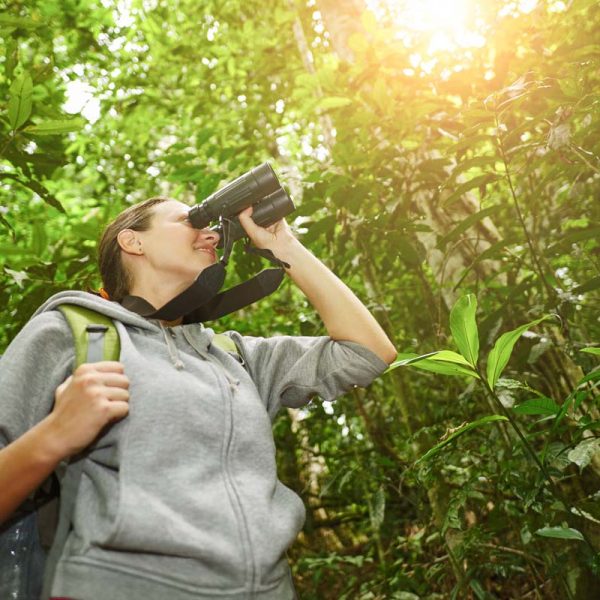Project to Train the Women of Putumayo in Colombia
Summary
Colombia: Ongoing conflict resolution brings an opportunity for economic development of impoverished communities and a conservation threat in newly accessible rural areas. Ecotourism is often proposed as a win–win solution for developing countries to meet both economic and conservation needs.
With the highest number of bird species of any country, including 443 rare species highly valued by bird-watchers, Colombia has a unique opportunity to develop a lucrative and conservation-friendly bird-watching tourism industry in post-conflict areas.
The British Council joined with Universidad del Cauca (a major public university), Instituto Tecnológico del Putumayo (local TVET college), and Asociación Mujeres Tejedoras de Vida (civil society organisation) in Putumayo to implement a project to develop a blended face-to-face and radio-based training to up-skill women across post-conflict municipalities of Putumayo. The project, financed by the Ministry of Education as part of its Rural Higher Education Development Plan, had three main objectives:
1. Design and pilot a technical training course in ecotourism and bird-watching, focusing on English for specific purposes;
2. Deliver the first cohort of the training course in 3 prioritised municipalities of Putumayo;
3. Encourage the formulation of community-based rural projects around ecotourism and birdwatching.
The project aimed to train 157 women in its initial phase, and to directly benefit 250 women, and indirectly benefit 19,250 people through the radio capsules by 2020.
The role of People 1st was to contribute to the following activities as part of objective 1:
- Support the technical consultant with expertise in developing modules for a technical training course in i) eco-tourism and ii) bird-watching.
- Provide UK expertise to support the design stage of the technical training course, i.e. number and size of modules, level and balance of knowledge, skills and behaviour.
- Provide recommendations for building capacity in the development and implementation of the technical training course.
Support for the initial phases of research, skills needs analysis and environmental scan.
In-country scoping visit by two expert consultants (ecotourism and bird-watching):
- Establishing current materials, i.e. guidebooks, birdsong apps, website links
- Meeting with key partners such as tour guide associations, trade or professional associations, government, education and civil society or community groups
- Identifying any existing provision that could be used for core units, such as tour guiding and sustainability
Through desk research in the UK, support the technical consultant in preparing draft outlines of the specialist modules, using best practice from the UK and internationally
Support the delivery of the pilot training with guidance on assessment and accreditation processes – support delivered through regular skype/phone/emails.
“The Eco Putumayo project is an important part of the British Council’s work in Colombia, focusing on delivering a technical training programme for women in rural areas in the post-conflict. Working with People 1st, we have been able to meet our objectives to help a significant number of women to develop skills that will enable them to build a sustainable livelihood and better future for themselves, their families and communities. At the same time, we are helping to develop the country’s ecotourism industry which will deliver long-term benefits to the work of conservationists and to the wider Colombian economy.”
Bárbara De Castro
British Council










